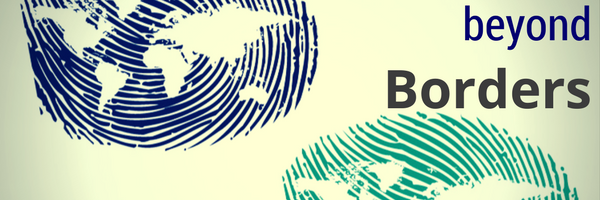

|
|
|
|
How to Build Trust on your Cross-Cultural TeamPerhaps the most important characteristic of a high-functioning team is trust. Team members must be able to trust each other in order for work to get completed; they must be committed and dedicated to the welfare of the group above their own individual needs. For any type of team, trust is a challenging thing to create and maintain, but when it comes to a cross-cultural team, trust can be especially difficult to achieve for a variety of reasons. Today, we will explore some of these reasons so that your team can be on its way to developing a solid bond that will propel their work forward. Let us look at the following: Communication styles vary from culture-to-culture so too, is the extent to which people socialize and get down work at the start of each meeting. There are differences around time, giving feedback, when and how to speak up and disagreeing, especially disagreeing publicly. Friction is bound to happen due to perceptions of ethnocentrism, with some team members feeling ignored or not taken seriously. So how can leaders of a cross-cultural team leverage the differences without falling prey to its challenges? In my experience in working with global teams there are several steps a team leader can do to help their team members develop a bond of trust that will lead to success of the overall project.
Trust is the glue that makes global teams function well, but it doesn't happen overnight. A team composed of culturally diverse members requires motivation to make things work. Applying some of the tips mentioned above will place you and your team in a better position to leverage benefits of diversity while minimizing its challenges. I end this piece with the following: "You are a foreigner everywhere, except in your own culture". Candida Marques – Global Arrival © 2018.
A Cross-Cultural ConversationCultural insensitivity is expensive. Anyone who conducts business overseas or would like to expand into international markets needs to be aware of how people from other cultures think and behave. "Selling is not selling" worldwide. Growth is not the same from culture-to-culture. See if you can detect the cultural clash in the following conversation: A PROMOTION FOR MR. LIN MS. CARTER: Nice to see you, Mr. Ken. How's everything going? MR. KEN: Very well, thank you. Did you hear that Mr. Chu has been promoted? MS. CARTER: Yes. Please offer him my congratulations. MR. KEN: I will. MS. CARTER: So. What can I do for you? MR. KEN: We'll need to make a few changes to the contract. MS. CARTER: Changes? The contract is already signed. MR. KEN: Yes, we're very happy to be working with you and look forward to a long fruitful relationship. MS. CARTER: Yes, we're very pleased too. MR. KEN: Of course, now for the changes. MS. CARTER: I'm not sure I understand. Has something happened since we last reached our agreement? Can you detect the subtle different expectations and understandings in the above conversation? For an explanation, read on: For Americans the foundation of business is a signed contract. The contract spells out all the mutually agreed-upon details of the relationship. It keeps everything running and impersonal. People may come and go, but the contract remains, the details in the contract is the essence of the relationship. In some cultures, the foundation of business is building and sustaining rapport and trust, the personal relationship that is established between two parties during meetings and business negotiations is the only thing that matters, the details of a contract are always subject to change and move as the relationship progresses. A signed contract in many cultures is only a formality, a symbol of the relationship, not the essence of the connection. In addition, a contract is bound to change because of changed circumstances. If the relationship is sound, such changes won't matter, and both parties make changes to keep the relationships moving forward. As seen in the discussion, Ms. Carter misses the point about Mr. Chu's promotion and takes the American position that a deal is a deal; it's all in writing, done and said and must be followed. Mr. Ken maintains, that some changes have occurred that require the contract be altered. For him they are trusted friends, why should it matter that he's requesting a few changes here and there? As long as there is trust, as long as both parties are committed, as long as they've agreed to a long-term relationship, a few changes in the contract will not matter in the scope of things. The American assumption is that the role of external events can be limited, in this instance by the power of the contract. It is not that the American is not willing to make changes, but the changes must warrant a very good reason. I end this piece with the following: "Understand the different ways in which business is conducted when working across cultures, it will help you to keep things running smoothly with trust, respect and solid relationships." Candida Marques – Global Arrival © 2018.

Quick Tips for Americans Working with Foreigners
Rule of thumb: "Know your people; understand what they need and adjust your attitude and behavior to help them feel confident and effective on the job." Candida Marques – Global Arrival © 2018. Reach out to Candida at: 908-625-2267, www.globalarrival.com, [email protected] so that Global Arrival can help you and your organization lead effectively in foreign cultures. |

|
|